|

by Sue Dunlevy
November 08,
2019
from
NewsCorpAustraliaNetwork Website
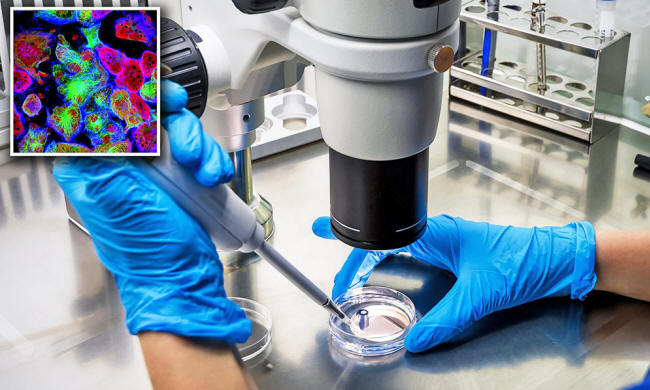
Human trials to
begin next year
using a virus to
kill cancer.
An Australian company has engineered
a new virus
based on cowpox
that is able to
kill every known type of cancer.
Now they are
ready for human trials.
It ended the scourge of smallpox 200 years ago, now the cowpox virus
is being used to kill cancer.
Scientists have engineered a new virus based on cowpox that is able
to kill every known type of cancer cell in a petrie dish.
The treatment called CF33 (video at bottom page) has been found to shrink tumors in mice
and it is hoped it will be trialed on Australian breast and other
cancer patients early next year.
Engineered by US cancer expert Professor Yuman Fong, the
treatment is being developed by Australia biotech company
Imugene,
which has licensed the innovation.
Professor Fong is in Australia this week to meet Imugene
representatives and plan the clinical trials.
The so-called "basket study" to be run in Australia and other
countries will enroll patients with,
Researchers believe this will show where the treatment is most
effective faster than just testing in one cancer.
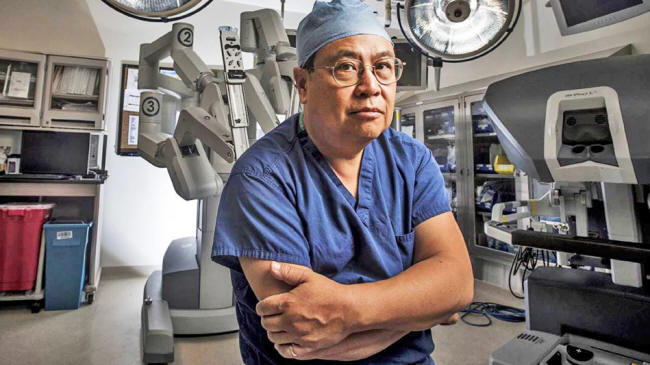
Professor Yuman Fong
who has
engineered a virus based on cowpox
that
can kill cancer.
Picture: SuppliedSource:News360
Just because the treatment works in mice does not mean it will be
successful in humans and early phase human trials are known as the
valley of death for many medical breakthroughs.
However, Professor Fong is hopeful because a series of other more
specific cancer killing viruses are already proving effective in
fighting cancer in humans.
US scientists have turned the virus that causes the common cold into
a treatment to kill brain cancer - in some patients the cancer
disappeared for years before returning, in others it shrank the
tumors considerably.
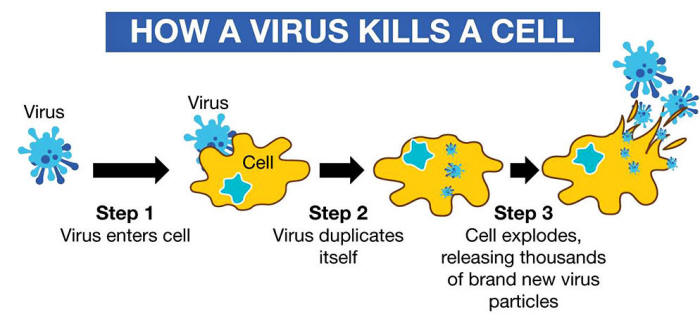
A modified form of the herpes or cold sore virus called
Imlygic
or T-Vec is being used to treat melanoma.
It helps the body’s
immune system recognize and destroy tumors and then finds other
melanoma cells throughout the body and kills them.
Australian Researcher Associate professor Tom John from the
Olivia Newton John Cancer Research Institute recently tested
another virus treatment in combination with immunotherapy
Keytruda
on 11 lung cancer patients and 3 patients saw their tumors shrink.
"The whole field is
an amazing place to be," he said.
|
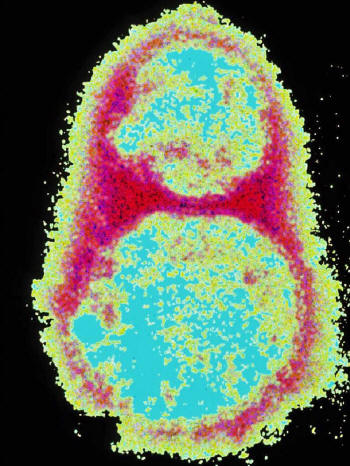 |
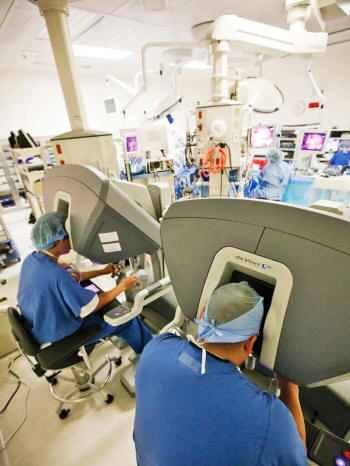 |
|
A new type of virus has been created
that can kill every type of cancer in a petrie dish.
Picture: SuppliedSource:News Corp Australia
|
mmm
Professional Yuman Fong engineered the virus
at the City of Hope Hospital in Duarte, California.
Picture: SuppliedSource:News360
|
"There was evidence
that viruses could kill cancer from the early 1900s when people
vaccinated against rabies had their cancer disappear, they went
into remission," Professor Fong said.
Previous research using
viruses to kill cancers failed because the viruses used were too
toxic.
Other treatments are only able to deal with cancers in
specific cells like skin or liver tissue.
"The problem was if
you made the virus toxic enough to kill cancer you were worried
it would also kill man," he said.
Professor Fong’s said
cowpox was known to be harmless in humans and he mixed it with
various other viruses that testing showed could kill cancer.
The breakthrough treatment will see cancer patients have the
engineered virus injected directly into their tumors where it is
expected to infect the cancer cells and explode them.
The virus is then expected to alert the immune system that there are
cancer cells in the body and prompt it to seek out and kill other
diseased cells.
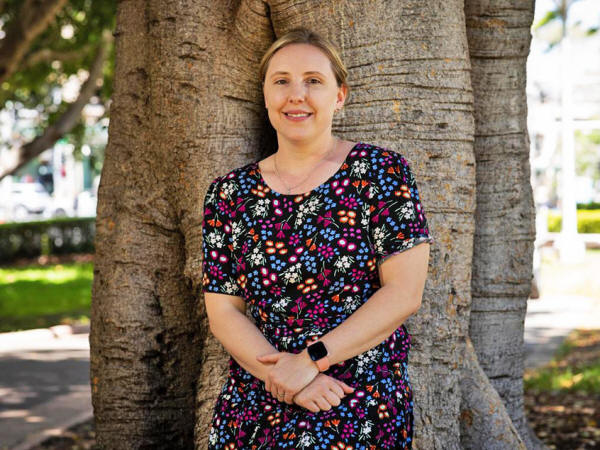
Jess Braude
fought
off triple negative breast cancer last year.
Picture: Julian Andrews
Source:
News Corp Australia
Sydney social worker Jess Braude was diagnosed with triple
negative breast cancer in July 2017 and she says the potential new
treatment will give new hope for those with the cancer.
This cancer strikes younger women and survival rates are low.
"Three of the people
I was going through treatment with, have passed away because
there is no targeted treatment," Ms Braude said.
Ms Braude was lucky
because she knew she carried the cancer causing BRACA2 gene and was
having regular check-ups which found her disease early and she’s now
in remission.
"It’s critical to
find new treatments, there are too many young women passing away
from this disease," she said.
"The idea of using a virus to kill cancer was 'amazing'," she
said.
|
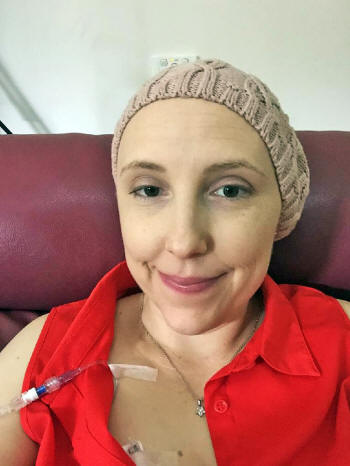 |
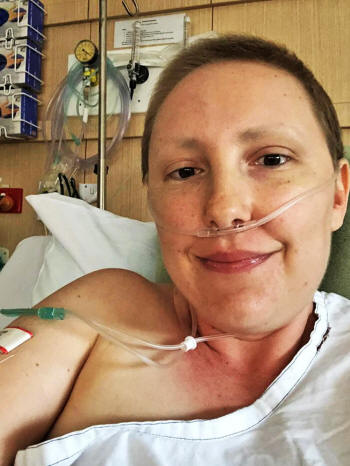 |
|
Three of the women Jess Braude
went through treatment
with died of the disease.
Picture:
SuppliedSource:News360 |
"It fills me with hope that there might be
something
there that can stop this disease".
Picture:
SuppliedSource:News360 |
Brisbane woman Natalie Flynn received the "absolutely
devastating" news she had stage three, grade three breast cancer
just two months ago.
Since having a double mastectomy, lymph node removal and going
through
the "brutal" regime of chemotherapy, Ms Flynn said,
"anything
would be better than this hell".
She said she would "absolutely" volunteer for the cowpox virus
trial, in the hopes that it may be a cure.
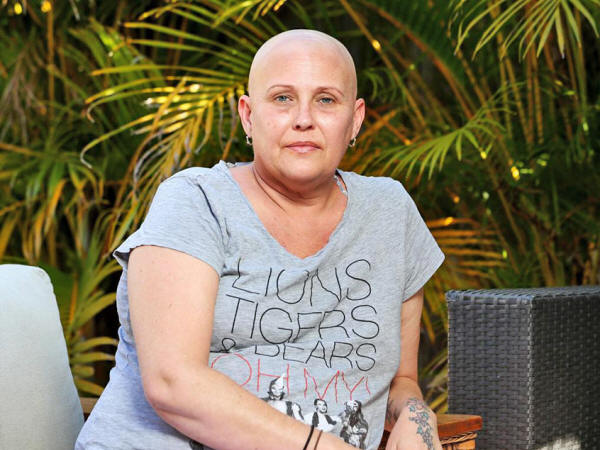
Natalie Flynn is being treated for breast cancer
and she
says anything would be better than
the hell of chemo.
Picture: Steve Pohlner
Source:
News Corp Australia
Cancer Council chief Professor Sanchia Aranda said the
potential new treatment must overcome many hurdles before it could
be proven to work in a human.
"When it is tested in
a human we will see whether the immune system mounts a defence
against the virus and knocks it off before it gets to the cancer
or there could be nasty side effects," she said.
"Cancer cells are very clever, they are true Darwinians that
mutate to survive and there is a likelihood they will evolve to
become resistant to the virus as they do now to become resistant
to chemotherapy and immunotherapy," she said.
However, she said it was
certainly worth testing the new treatment to see if it could be
added to the existing arsenal against cancer.
Video
|










